In late January, the FDA’s Vaccines and Related Biological Products Advisory Committee unanimously voted to recommended a single-shot COVID vaccine, consisting of the current bivalent vaccine. Although the FDA still needs to sign off on the recommendation before it would go into effect, the move would replace the current primary/booster series of shots to a single-composition shot for all, regardless of prior vaccination. The move also would enable other vaccine manufacturers to submit formulations to FDA for approval as authorized vaccines.
The endorsement of the 21-member committee, which includes CDC’s Chief Medical Officer, signals “its belief that these new second-generation vaccines are an upgrade over their predecessors in protecting from infection and severe illness at this point in the pandemic.”
With FDA and CDC seemingly in sync on the move to a single-shot vaccine, TAG would see it as likely that this fall’s vaccine recommendations would not only be for the annual influenza vaccine but also that of COVID. We will continue to keep an eye on this space and report updates of any forward movement.
Weekly Matrix. A couple notes on TAG’s Communicable Disease Risk Matrix (graphs below):
- The RSV outbreak appears to be over, so we will likely end our regular reporting on this disease within the next weeks.
- Flu cases are low, but the proportion of Influenza B has increased, particularly in states such as New York, that continue to have higher case rates. So we would recommend that businesses continue to keep guard against this infectious disease, as there could still be a few Influenza B surprises in store.
- COVID is continuing its decline, and we are seeing nothing at this time on a global basis to indicate any new threats.
COVID Risk Matrix:
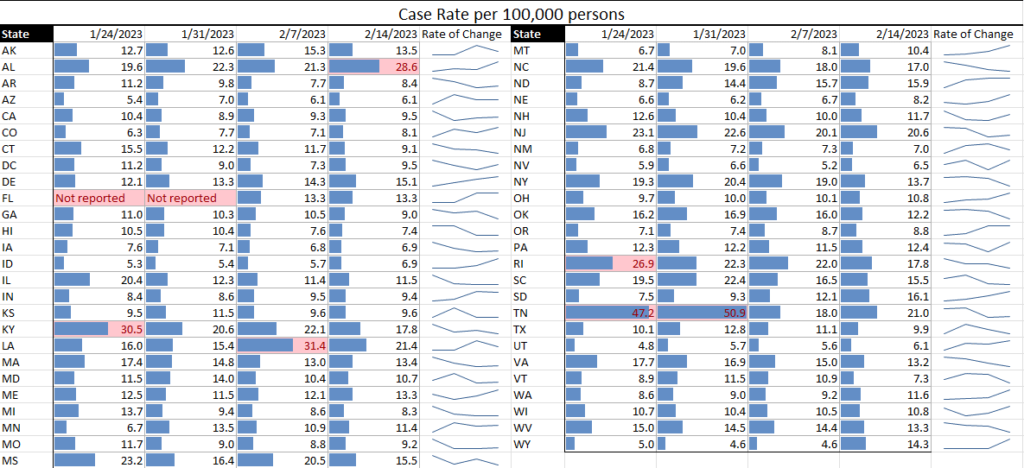
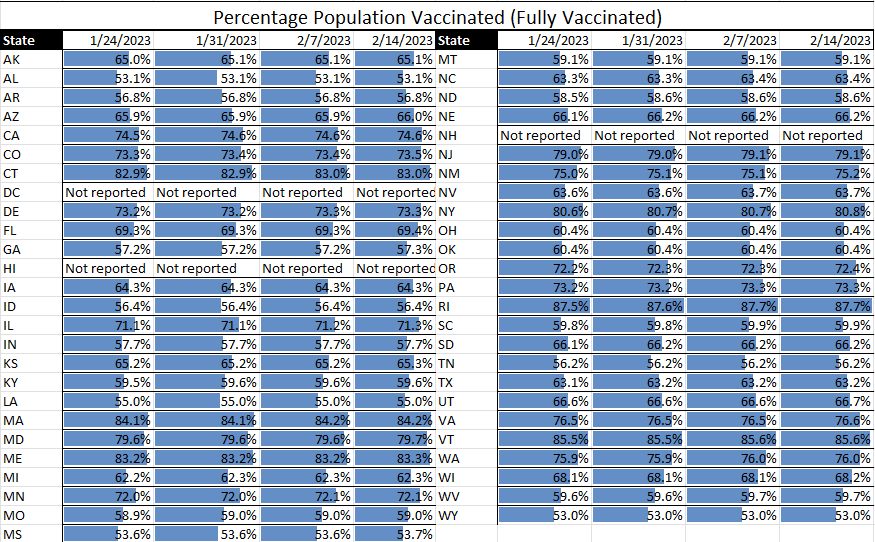
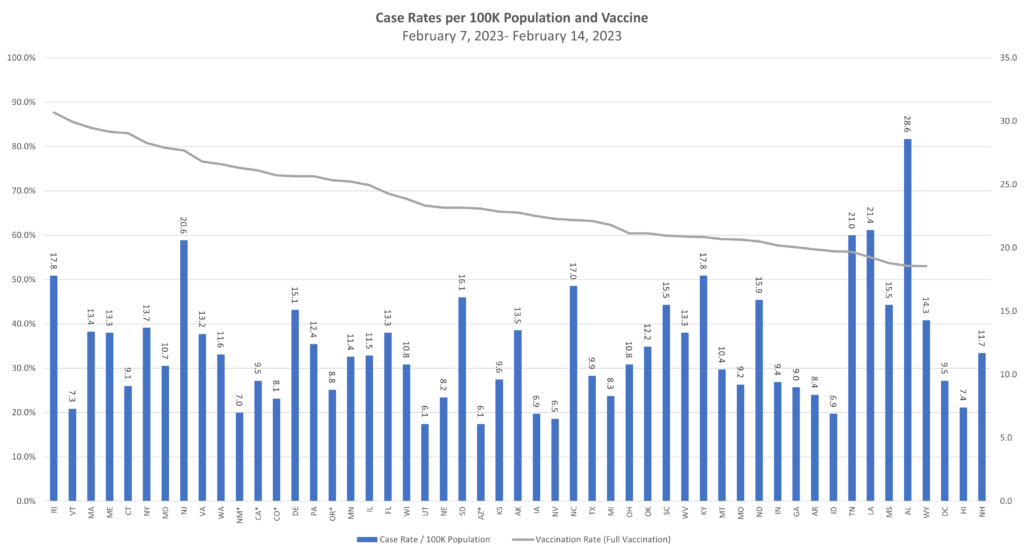
Influenza:
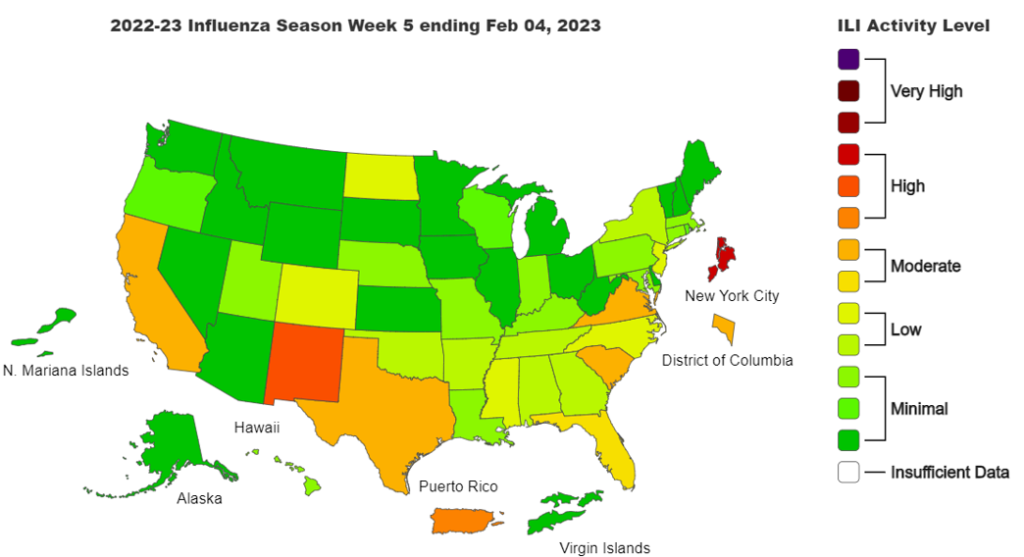
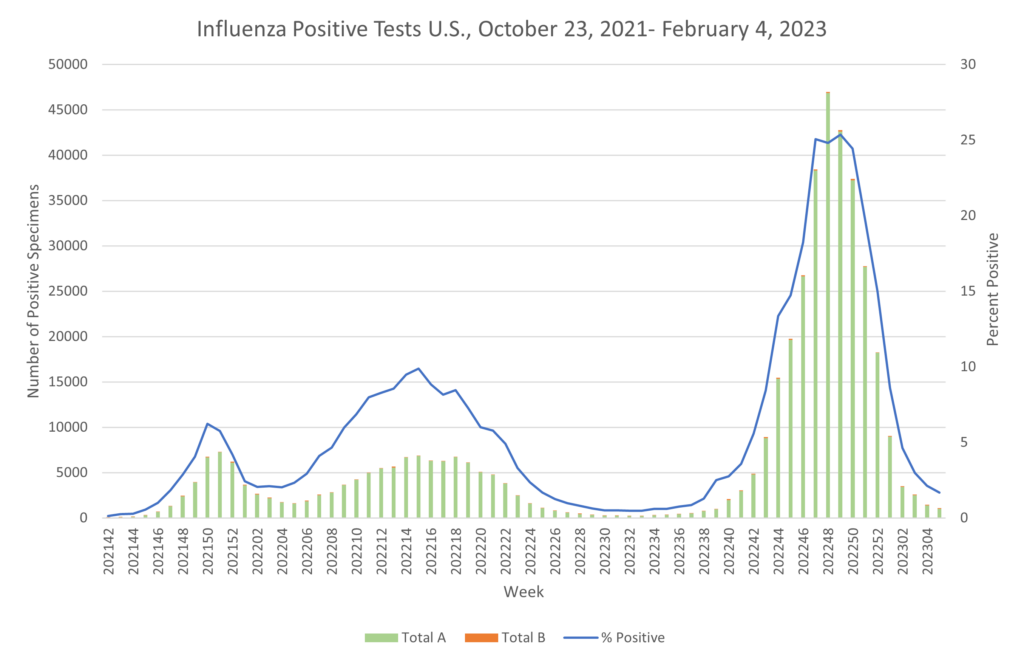
Infectious Disease News:
- Chicken pox. Recently recorded cases of chicken pox in the Northwest Territories in Canada and Michigan have prompted continuing recommendations for people to get vaccinated.
- HCirV-1. The first instance of a new virus variant “human circovirus-1”(HCirV-1) that infects human liver cells, multiplies in them, and damages them has been found in a human patient in France. The source is unknown. These viruses have been known to infect birds and swine, but this isolate is not related genetically to any of those found to date.
- Measles. The Pan American Health Organization has issued an alert, urging countries of the Americas, including the Caribbean, to update their response plans to prevent the re-establishment of endemic transmission of measles virus. This is due to a reduction in childhood vaccination coverage, increasing the possibility for outbreaks of this disease. They believe that the risk of outbreaks of vaccine-preventable diseases in the region is at its highest point in the last 30 years.
- Meningitis. An outbreak of meningitis in Niger has been reported. From 1 November 2022 to 27 January 2023, a total of 559 cases of meningitis (of which 111 are laboratory confirmed), and 18 deaths (overall CFR 3.2%), occurred. It appears that cases have spread to Nigeria with whom a border is shared. As reported to the WHO, officials in the northern Mexican state of Durango reported that at least 35 people have died from a mysterious meningitis outbreak. Health authorities there have recorded 79 cases of meningitis in the past few months, the report said.
- TB. The Institute of Public Health is collaborating with the municipal superintendent in the relevant municipality to investigate findings of tuberculosis infection in 6 people in Rogaland county in Norway. The persons were sampled following the discovery of bovine tuberculosis in a cow that was slaughtered in November 2022. Typically, bovine TB would be transmitted to humans via consumption of unpasteurized dairy products. There’s no mention of whether that may have occurred in this situation.
- Marburg fever. Equatorial Guinea confirms its first Marburg fever outbreak. The cause of a cluster of viral hemorrhagic fever deaths in Equatorial Guinea has been identified as Marburg virus, marking the country’s first such outbreak. The country issued a health alert on Feb 9, following nine deaths in Kie-Ntem province in the northeast.





